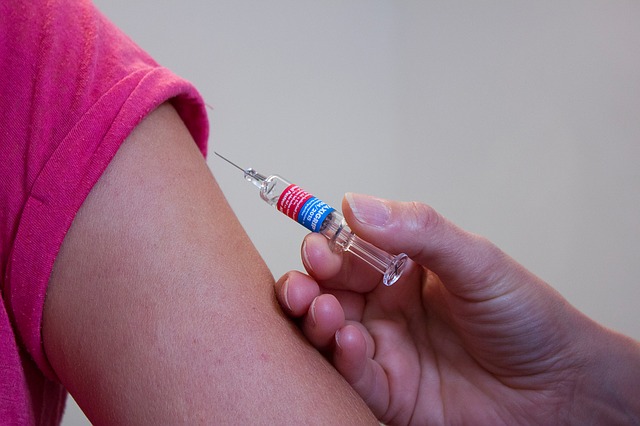Nothing matters more in life than your ongoing health, and it’s critical you remain in charge of your self-care and armed with all the facts you need to keep you safe, happy and living your best life. That’s why today Vitality are taking a closer look at the HPV virus and its close links to oral cancer in both genders, and what you need to know about this often under-considered cause of oral cancer. If you have a concerns about your oral health and want to know how our dental experts can help you screen and diagnose HPV, please contact us straight away.
Wait, you can get HPV in the mouth?
Yes, HPV oral cancer is very much a manifestation of this strain of cancer. Medical history was made in recent decades with the development of a vaccination against this particular cancer strain, making it the very first cancer type which can be prevented with a simple shot administered to you or your children. However, very much of the publicity around HPV has portrayed it as a ‘woman-only’ concern, to the immense detriment of everyone concerned.
HPV, or the Human Papillomavirus, is most associated with cervical cancer in women, and regrettably, this is where much of the focus of vaccination campaigns for this insidious viral cancer strain has been placed. While it is indeed one of the leading causes of cervical cancer in women, it also has a strong- and utterly gender neutral- association with HPV oral cancer. In fact, it is one of the leading causes of oropharyngeal cancers or cancers of the mouth and throat. It also has associations with genital warts and anal cancer, meaning it’s more than the time the focus of this disease was broadened to include all people, not just women.
What is HPV?
Before focusing on HPV in the mouth, it’s perhaps prudent to look at this particular virus more generally. HPV is, in fact, an immensely common virus and almost all sexually-active adults will be exposed to it at some time or another. Numbers suggest 10% of men, and ½ that number of women, will have it at any given time. In almost all of these cases, your immune system will simply shrug it off and you will never even know you were exposed. It’s important to understand that this is a class of virus rather than a single thing, with many different strains [as with the flu virus] and many of those same strains will have no adverse effect on your health at all. Others may cause ‘harmless’ side effects like oral lesions and genital warts, which may be unsightly and irritating but pose no real threat to your health. Sometimes, however, the infection can turn deadly by triggering cancerous mutations to occur.
What does oral HPV look like? What are the early symptoms of HPV in mouth?
What do the early symptoms of HPV in the mouth look like? HPV infection within the mouth will first present as small red, pink or pale HPV mouth sores, similar to any mouth ulcer or canker sore. That is why prompt action on your behalf to see a dentist is a must if you detect any oral abnormality in your day-to-day life. While 90% of these cases are not related at all to cancer, prevention is always a better mode of action then cure, and it’s better to be safe than sorry.
HPV mouth sores may feel sore to touch, or hurt when you eat, but can often be painless. HPV can also present as a wart within the mouth- look for a small grey or white, ‘lumpy’ growth. If allowed to grow unchecked, these warts may begin to grow in larger and larger quantities, clumping together as a mass, and may even begin to grow outside of the oral cavity. Oral HPV is typically very slow growing, but don’t let that prevent you from swift action. Don’t forget to examine the roof of the mouth and palate as well as lips, tongue and gums.
You may also experience difficulty swallowing, or a ‘sticky’ feeling as you swallow, have swollen but painless tonsils, be able to feel a lump in the neck area, experience a chronic sore throat or difficulty chewing/ a chronic cough, get intermittent numbness or tingling in the tongue or throat, drool excessively or have single sided ear ache for long periods without resolution.
While these are the most typical manifestations of HPV in the mouth, it’s important to realise not all cases present exactly the same. If you notice any irregularity on your lips, mouth or gums, please do be sure to have them checked out by a dentist.
How does HPV oral cancer spread?
The HPV virus is spread through oral sexual activity as well as mouth-to-mouth interactions such as kissing. Its actual mechanism of spreading is through infected saliva touching delicate mucosal membranes in the mouth, or cuts/damage on the gums. There is also a small risk of the virus being spread from mother to child via breastfeeding. The HPV infection can persist for up to 2 years but is usually totally destroyed by the immune system rather than developing into anything further.
How do I reduce the risk of HPV mouth sores?
There are certain things you can do to reduce your risk factors for developing oral HPV. This includes avoiding having multiple sexual partners, quitting smoking and the use of tobacco products, reducing your alcohol intake, and general safe sexual practices such as using protection.
Again, it is important to realise that HPV in the mouth is a matter for both genders, and HPV, in general, is not simply a ‘woman’s cancer’ despite the media presentation of it as such. While vaccination programs previously have not included boys, this is now starting to change. Currently, the only cure for HPV-related oral cancers is surgery, so it is critical to act fast if you suspect anything. Your dental practitioner would far rather send you home knowing it was a simple mouth ulcer then have to diagnose cancer, so you will never be ‘troubling them’ or ‘being silly’ by raising a concern over a mouth irregularity with them.
What to do next?
The Vitality team are always happy to answer any questions regarding HPV in the mouth and early symptoms of HPV. If you have any concerns please book an initial consultation with one of our clinical dentists today.


